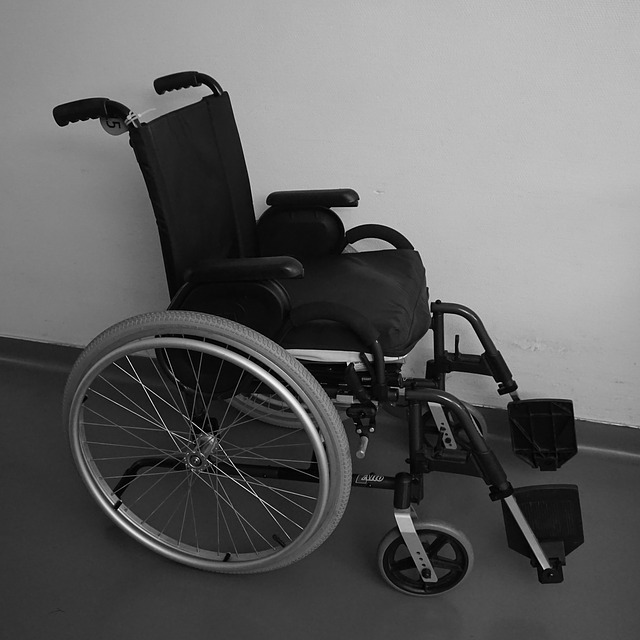End Stage Multiple Sclerosis:
What It Means and How to Prepare
Talking about end stage multiple sclerosis (MS) isn’t easy. It’s one of those topics that feels heavy, emotional, and even a little scary. But if you or someone you love is living with MS, understanding what this stage looks like and how to prepare for it can bring a sense of clarity and control.
It's something that Cir and I take on rarely, but we do sometimes talk about it, especially what we would do if something were to happen to one or the other of us. We've been together so long that we can't imagine not having one of us around. The thought of Cir not being able to see, walk, or talk, makes my heart sad. He's such a vibrant person – to think that this disease could eventually render his body helpless, is one that I don't like to think about.
What is End Stage Multiple Sclerosis?
MS is unpredictable—some people live with mild symptoms for decades, while others experience progressive disability. Not everyone with MS will reach end-stage, but for those who do, it’s important to know what to expect, how to manage symptoms, and how to make decisions that honor your wishes.
Let’s talk about what end-stage MS really means, how symptoms progress, and what you can do to prepare for the future while still living fully today.
What Is End-Stage MS?
End-stage MS is the point where the disease has progressed to its most severe form, often leading to significant disability and life-threatening complications.
At this stage, doctors may have limited treatment options, focusing more on comfort and symptom management rather than disease-modifying therapies.
While MS itself isn’t fatal, complications from immobility, swallowing difficulties, and respiratory issues can lead to conditions like pneumonia, which may become life-threatening.
Worsening Symptoms in End Stage Multiple Sclerosis
If you’ve been living with MS for a while, you’re probably familiar with flare-ups, fatigue, and mobility challenges. But in end-stage MS, symptoms can become more severe and persistent.
1. Vision Loss
- Some people experience complete blindness due to optic nerve damage.
- Others may struggle with double vision or difficulty focusing.
2. Mobility Challenges
- Walking may become impossible, leading to full-time wheelchair use or complete immobility.
- Muscle weakness and spasticity can make even small movements difficult.
3. Bladder and Bowel Issues
- Many people require a Foley catheter for bladder control.
- Bowel dysfunction may lead to chronic constipation or incontinence, requiring adult diapers.
4. Swallowing and Breathing Difficulties
- Swallowing problems can lead to choking, making a feeding tube necessary.
- Weak respiratory muscles may cause breathing difficulties, requiring oxygen therapy.
5. Increased Pain
- Muscle spasms, nerve pain, and joint stiffness can become more intense.
- Pain management may involve medications, physical therapy, or palliative care.
Planning for the Future:
Living Wills and Care Decisions
One of the most important things you can do—whether you’re in early-stage MS or end-stage MS—is to plan ahead.
1. Creating a Living Will
A living will ensure that your medical wishes are honored if you become unable to communicate. It can outline:
- Whether you want life-sustaining treatments like feeding tubes or ventilators.
- Your preferences for pain management and comfort care.
- Who will make medical decisions on your behalf.
2. Discussing Care Options
- Some people choose home care, while others may need hospice or nursing home support.
- It’s important to talk with family members and doctors about what feels right for you.
3. Emotional Preparation
- Facing end-stage MS can bring up fear, grief, and uncertainty.
- Seeking counseling, support groups, or spiritual guidance can help process emotions.
Managing Symptoms and Improving Quality of Life
Even in end-stage MS, there are ways to maximize comfort and maintain dignity.
1. Pain Management
- Medications, massage therapy, and heat therapy can help ease discomfort.
- Stretching and gentle movement may reduce stiffness.
2. Adaptive Equipment
- Wheelchairs, hospital beds, and mobility aids can improve comfort.
- Voice-assisted technology can help with communication.
3. Nutrition and Hydration
- Liquid diets or feeding tubes may be necessary for those with swallowing difficulties.
- Hydration is key to preventing complications like urinary tract infections.
4. Emotional and Mental Well-Being
- Music therapy, meditation, and social interaction can provide comfort.
- Spending time with loved ones can bring joy, even in difficult moments.
Living Fully, Even in End-Stage MS
End-stage MS is not something everyone with MS will experience, but for those who do, it’s important to prepare, plan, and focus on comfort.
While MS may change your body, it doesn’t have to take away your ability to find meaning, connection, and peace.
If you’re facing end-stage MS, know that you’re not alone—there are resources, caregivers, and loved ones who want to support you.
And if you’re still in earlier stages, take this as a reminder to live fully today, make healthy choices, and cherish the moments that matter.
Would you like me to expand on specific care options or symptom management strategies?
Here's an article on Health Line - about the final stages of MS. (Link will open in a new window).
Dear Friends,
"Life in Spite of MS is a participant in the Amazon Services LLC Associates Program, an affiliate advertising program designed to provide a means for sites to earn advertising fees by advertising and linking to Amazon.com. We're also part of the Ebay Partner Network, another affiliate program."
We'd also like you to know it doesn't cost one cent more when you click through the links here on our blog. Not one single penny. And we will make a little extra cash when you do click through. We'll be ever so appreciative. You also have our word that we'll only link to things that we would use ourselves, (or wish we could have or use).
Sincerely,
Cir & Akrista
You are reading original content written by Akrista or Cir L'Bert of Life in Spite of MS. If you enjoyed reading this blog, please consider following us on Facebook, Twitter, Pinterest, and Instagram. See you there!
Privacy Policy ~ Advertising Policy ~ Disclaimer ~ Contact Us ~ About Us





New! Comments
Have your say about what you just read! Leave me a comment in the box below.